Health
Summer Camp: Sun, Swimming, Archery. And Therapy.

Heather Klein was in her cabin at Camp Nah-Jee-Wah, nursing her first iced tea of the morning, when a photograph arrived on her phone and she drew a deep, sudden breath.
Ms. Klein, the mental-health coordinator for a network of sleep-away camps, has a morning routine: responding to queries from anxious parents, who have looked at the photographs posted online the night before. Why does my child look sad? they want to know. Where are their friends?
This message was from a counselor — and it was serious. A teenage camper had switched from high-tops to Crocs to go to the beach, which allowed her counselor to see a row of cuts the girl had made with a razor.
Ms. Klein pulled up the girl’s medical forms, which noted that she had been in therapy for anxiety and depression but made no mention of self-harm. “OK,” she said. “She’s going to have to go home.”
In her role at NJY Camps, a network of Jewish overnight camps in Pennsylvania, Ms. Klein spends her days sorting serious risks, ordinary unhappiness and squalls of parental anxiety.
All day, as campers move in flocks from the dining hall to swimming, to crafts and archery, to their bunks, Ms. Klein zips around camp in a golf cart, outfitted with a fanny pack and a walkie-talkie.
Summer camp has always involved a degree of emotional struggle. Homesickness is overcome; high dives braved; bunk mates won over. When adults in the industry refer to a “successful camper,” they often mean one who sticks it out.
But youth mental illness is an urgent problem in this country, a challenge the surgeon general has described as “the defining public health crisis of our time.” Between 2001 and 2019, the suicide rate for Americans aged 10 to 19 jumped by 40 percent, and emergency-room visits for self-harm rose by 88 percent.
During the pandemic summers, many camp directors say, campers arrived with mental issues of a severity they had not seen before, exceeding the capacity of counselors in their teens and 20s.
Kelly Rossebo, the director of Camp Eagle Ridge in Mellen, Wis., recalled a single night in 2021 when she and her mental-health specialist “tag-teamed back and forth” for hours, addressing problems that included suicidal ideation, eating disorders and binge drinking.
Since then, she said, “I have certainly had to have harder conversations with parents about whether we’re the right fit for their child.”
“We’re a leadership camp; we’re not a therapeutic camp,” she added. “I wouldn’t necessarily want to change that demographic. I’m not looking to say, ‘Send us your kids who are struggling, because we’re awesome at it.’”
As the pandemic recedes, many camps are adding mental supports. Some have care teams that meet regularly to discuss interpersonal dynamics among bunkmates. Many set aside time and space for therapy via video during the day. And many camps have created new staff positions focused full time on mental health.
At the NJY camps, which are affiliated with New Jersey’s Jewish Community Centers, among other partners, that person is Ms. Klein, 51.
A familiar face at NJY, where she has served in various capacities for 15 years, she now focuses year-round on mental-health issues for the network, a position funded by the Healthcare Foundation of New Jersey. A day spent in her company, from 7 a.m. to midnight, offers a glimpse into an increasingly complex juggling act.
7:23 a.m.: ‘Big love’
“Those are fresh wounds,” Ms. Klein said, peering at the photograph the counselor had sent her, showing a row of reddish cuts on a bare ankle. She felt for the girl and her family, but the camp had a policy: Campers engaging in active self-harm would be sent home.
“We are not a therapeutic environment,” she said. She keeps an eye out for campers who arrive with the stack of bracelets known as “camp wrist,” which can conceal scars, or who wear pants all the time and may be cutting their legs.
The camp’s intake forms now ask a specific question: Has your child demonstrated any unsafe behaviors? But parents, she said, don’t always tell the whole story. They “want their kids to be able to go and do, and don’t realize the importance of us having all the information.”
Over the phone, she talked the counselor through the next steps, starting with the pickup by a family member. “Let’s make sure she is safe and watched and with a staff person at all times,” Ms. Klein said. “I’m sending you big love.”
Just like that, the teenager’s camp summer was over. And Ms. Klein was needed in Bunk 50.
8:12 a.m.: Breakfast meds
Much of Ms. Klein’s day is spent on standard camp fare: In Bunk 15, a camper flushed his bunkmate’s glasses down the toilet. There were dizzying violations of the “no back/no boobs/no butts/no bellies” rule and skirmishes over Jibbitz, the plastic charms that decorate Crocs.
Of the 2,200 children and teens who attend NJY camps in the summer, around 20 percent take medication for attention deficit hyperactivity disorder and 15 percent for anxiety and depression, according to the medical staff. Twenty-five to 30 meet remotely with therapists during camp sessions.
Outside the dining hall, a nurse called out, “Breakfast meds,” and a line of children formed. This, Ms. Klein said, is simply part of the fabric of childhood. Last month, when an 11-year-old camper began misbehaving, Ms. Klein called a bunk meeting and explained to the other children what had happened: The girl had been on a “medication vacation,” and it wasn’t working out.
“I said, ‘Do you know what A.D.H.D. is?’” she said. “They said, ‘Oh, yeah, my mom has that. My therapist told me about that.’ Kids know what is going on.”
In recent years, campers have arrived at camp with a sophisticated clinical vocabulary that they have picked up from their peers and TikTok. “They exchange these high-level concepts with each other,” Ms. Klein said.
This can cause ordinary moments to escalate. “A kid that is just crying and has lost their breath because of crying, the counselor is like, ‘She’s having a panic attack,’” Ms. Klein said. “No.”
This is part of the problem, she added: “They’re all so therapized.”
12:39 p.m.: Struggle muscles
“She was definitely crying before bed,” Ms. Klein said on the phone to a mother. It was a delicate balance; before drop-off the previous day, the girl’s mother had told her she could come home if she wasn’t happy.
Ms. Klein was intent on shoring them up, mother and daughter. “I really don’t think she needs to go home,” she told the mother. “I want her to use those struggle muscles and understand she can do hard things.”
Homesickness has always been part of camp, but in recent years it has become more acute and difficult to manage, she said, perhaps because of the habit of constant communication between parents and kids.
“We used to work with parents and say, ‘We can get your child through this,’” she said. “Parents used to trust us much more.”
In 2021, well into the pandemic, between 35 and 40 children were sent home from NJY camps because of homesickness or anxiety, which was a record for the camp and part of the reason Ms. Klein’s job was created.
Ms. Klein was trying to keep the girl at camp. They conferred on her golf cart and on the sidelines at a barbecue. There was a flurry of telephone calls between adults: The camp director and the girl’s mother. The camp director and Ms. Klein.
“When you said you can reassess in a few days, that is really giving her the option to not be here,” Ms. Klein told the mother. “If I don’t have your backing on that, I may as well pack her up right now.” Later, the girl’s mother sent a text asking Ms. Klein to keep her distance.
She would pick up her daughter the next day.
4 p.m.: Blood oxygen
In the infirmary, a curly-haired boy had reported nausea, vomiting and difficulty breathing, and also that when he closed his eyes, he saw the color cyan. He thought it would be a good idea to check his blood oxygen levels.
Ms. Klein knew the boy. “Mom says he fabricates,” she said. She checked his temperature and led him back to the golf cart. “I think what you’re feeling is nervousness,” she told him, and then dropped him at the nature center.
A call came in from Round Lake Camp, which is for children with learning differences, social communication disorders and A.D.H.D. A camper was curled on a porch, gasping for air and crying out, “I’m vibrating!”
Ms. Klein stroked the camper’s leg. “Breathe in like you’re smelling a pizza,” she said. “I want to see your belly moving up and down.”
A report of a suspected eating disorder was, she determined, a false alarm. After dispatching that case, she found an 8-year-old in pigtails sitting cross-legged on the pavement. “I don’t like the feeling of camp,” she said. “It feels weird.”
In past years, counselors might have handled these situations, but the counselors themselves are stressed out, she said. “They have lost the ability to use their struggle muscles,” she said. “They just want someone to come in and fix it.”
Later, the pigtailed girl refused to leave her bunk, and Ms. Klein took her to the infirmary for a temperature check. “There’s going to be a little placebo effect here,” she said cheerfully, and returned the girl to her bunkmates at the amphitheater.
9 p.m.: Emotional support rabbit
Ms. Klein did not love camp as a child. She remembers sitting, alone and miserable, on the porch of her bunk; if the staff sought her out to comfort her, she has forgotten it.
She persuaded her parents to bring her home early, but she felt, for years after that, that she had fallen short.
This is what she wants to prevent, she said. “I often tell parents whose kids are struggling, if they quit, they will feel like failures, and we don’t want them to feel that way,” she said.
She tries to convey to the children that sadness is transient, that it can exist alongside happiness, “that it’s OK to have two feelings at the same time.” When she was a camper, she said, “nobody gave me those words.”
At 9 p.m., insects wheeled in the flood lights above the tennis courts. Senior staff had flopped down on the couch in Ms. Klein’s office, discussing a camper who had been sent home for flashing a gang sign. They were all exhausted.
Then word came in that two vapes had been found in a camper’s backpack, one nicotine and another marijuana, a violation of camp rules serious enough to require the attention of the chief executive.
“I got to call Michael on this,” Ms. Klein said, but it killed her: This teenager had been at camp two years ago when word came in that her mother had died. Ms. Klein had helped pack her up to go home then, too.
The camper headed to the infirmary, dangling a stuffed animal. “Emotional support rabbit,” said a label on its chest.
Ms. Klein watched her leave and covered her face with her hands. Then she rested her elbows on the top of a bookshelf and wept.

Health
Who Will Care for Infants With H.I.V. Overseas?

The Trump administration has dismissed the few remaining health officials who oversaw care for some of the world’s most vulnerable people: more than 500,000 children and more than 600,000 pregnant women with H.I.V. in low-income countries.
Expert teams that managed programs meant to prevent newborns from acquiring H.I.V. from their mothers and to provide treatment for infected children were eliminated last week in the chaotic reorganization of the Health and Human Services Department.
Some of the consequences of the dismissals are only now coming to light.
While it was known that some staff members devoted to H.I.V. prevention in other countries had been lost, The New York Times has learned that all such experts have now been terminated or are awaiting reassignment at the Centers for Disease Control and Prevention, the State Department and the U.S. Agency for International Development.
These maternal health programs are still funded by the President’s Emergency Plan For AIDS Relief, or PEPFAR. But without personnel to manage the initiatives or to disburse the money, it’s not clear how the work will continue.
The Health and Human Services Department did not respond to a request for comment.
“We hope this is not a sign that treating mothers and children is no longer important in PEPFAR, and that this is a mistake that can be corrected,” said a federal health official who spoke on condition of anonymity for fear of retaliation.
The stakes are high. Already in sub-Saharan Africa, a child under 15 dies of AIDS every seven minutes.
On Tuesday, a study in The Lancet estimated that suspending PEPFAR could lead to about one million new H.I.V. infections by 2030 and could lead to nearly 500,000 AIDS deaths among children and the orphaning of 2.8 million more.
After the nascent Trump administration froze all foreign aid, Secretary of State Marco Rubio issued a waiver permitting delivery of “core lifesaving medicine, medical services” and other activities funded by the United States.
A waiver specific to PEPFAR later explicitly continued support for programs meant to prevent mother-to-child transmission of H.I.V., and to provide treatment of infected women and children.
The paperwork allowing the aid to resume took weeks after the waiver was issued, and several organizations are only just beginning to receive federal funds required to run the programs.
“You can dismantle something very quickly, but now you’re trying to build it back up with a fraction of the staff and potentially 5 percent of the institutional knowledge,” said a federal official who wasn’t authorized to speak to the news media and requested anonymity.
All experts in pediatric H.I.V. were all let go in the gutting of U.S.A.I.D., leaving a single unit at the C.D.C. with the expertise to advise overseas programs. That team was lost in last week’s reorganization, along with another that handles disbursement of funds for 300 grants in more than 40 countries.
Given the State Department waiver, those layoffs came as surprise to the federal health workers and to the organizations that rely on them.
“We clearly understood that H.I.V. services for mothers and children would fall under” the waiver, said Dr. Anja Giphart, executive vice president of medical and scientific affairs at the Elizabeth Glaser Pediatric AIDS Foundation.
The foundation depends on the C.D.C. for about 60 percent of its budget. “We were totally blindsided that the whole unit at C.D.C. is being terminated,” she said.
The organization has been promised funds until September. But only a few people were authorized to use the payment system at the C.D.C.
“Everyone is scrambling now to figure out how to pay country teams and partners,” said a C.D.C. official who requested anonymity for fear of retaliation.
Other experts said that they were not surprised by the hollowing out of the C.D.C.’s H.I.V. teams despite the waiver.
“What we’ve seen is that there’s no rhyme and reason to any of the actions that the administration is taking,” said Jirair Ratevosian, who served as the chief of staff for PEPFAR in the Biden administration.
Care for children and pregnant women with H.I.V. is complex.
Infants need an H.I.V. test different from the one used for adults, and infected babies must take a separate set of medications. They succumb quickly to complications when treatment is interrupted.
“Especially when you think about children, time is of the essence,” Dr. Giphart said. “That seems to not really be taken into consideration with all these changes that are being made.”
In low-income countries, pregnant women with H.I.V. usually get treatment at prenatal clinics. Without treatment, one in three pregnant women may pass H.I.V. on to her baby.
Treatment decreases the risk of transmission to less than 1 percent. PEPFAR has prevented nearly eight million such infections in newborns since its inception, in 2003.
The foreign aid freeze imposed in January has resulted in shortages of pediatric H.I.V. drugs in many countries and the delayed delivery of a new H.I.V. drug treatment.
The C.D.C. experts who were let go had been helping low-income countries prepare for this transition, tracking stocks and helping to direct the medications to the places with the most urgent needs, said an official who spoke on condition of anonymity for fear of retaliation.
“This coordination is especially critical right now because we’re in a period of immense change,” the official said.
Health
Low-carb keto diet may not raise heart disease risk, new study suggests
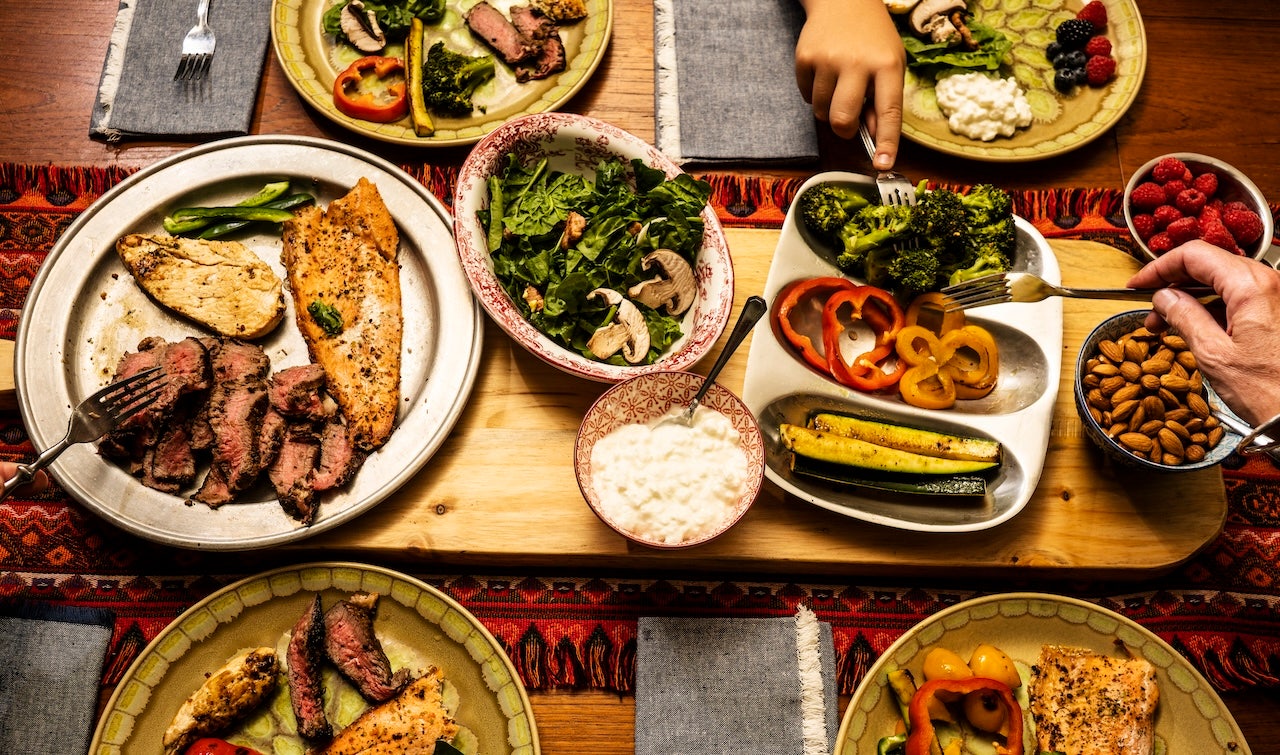
High cholesterol has long gotten a bad rap for causing poor heart health — but a new study suggests that the low-carb ketogenic diet may not be linked to cardiovascular disease.
The study, led by The Lundquist Institute for Biomedical Innovation at Harbor-UCLA Medical Center in collaboration with researchers across multiple institutes, assessed 100 participants following a long-term keto diet who developed elevated levels of LDL cholesterol (known as the “bad” type).
Other than the elevated cholesterol, all participants were “metabolically healthy” and had followed the key diet for an average of five years, according to an April 7 press release.
HEART DISEASE RISK HIGHER FOR WOMEN WHO HAVE THESE UNHEALTHY LIFESTYLE HABITS
They all qualified as LMHR (lean mass hyper-responder), which indicates people who adopt a carbohydrate-restricted diet and experience a significant rise in cholesterol.
High cholesterol has long gotten a bad rap for causing poor heart health — but a new study suggests that the low-carb ketogenic diet may not be linked to cardiovascular disease. (iStock)
Using advanced cardiac imaging, the researchers found that traditional cholesterol markers (ApoB and LDL-C) were not associated with changes in plaque levels in the heart’s arteries or with baseline heart disease over a one-year period.
Instead, existing plaque levels seemed to be a better predictor of future plaque accumulation.
“This population of people — metabolically healthy with elevated LDL due to being in ketosis — are not automatically at increased cardiac risk simply because their LDL is elevated,” Bret Scher, MD, medical director of Baszucki Group, which provided funding for the study, told Fox News Digital.
‘I’M A HEART SURGEON AND THIS IS WHAT I COOK FOR DINNER’
“Therefore, we should likely shift away from LDL and ApoB and toward vascular imaging with CAC or CTA for better risk prediction and informing how or if to treat someone’s cardiac risk factors,” added the California-based doctor.
The study findings were published in the Journal of the American College of Cardiology: Advances.
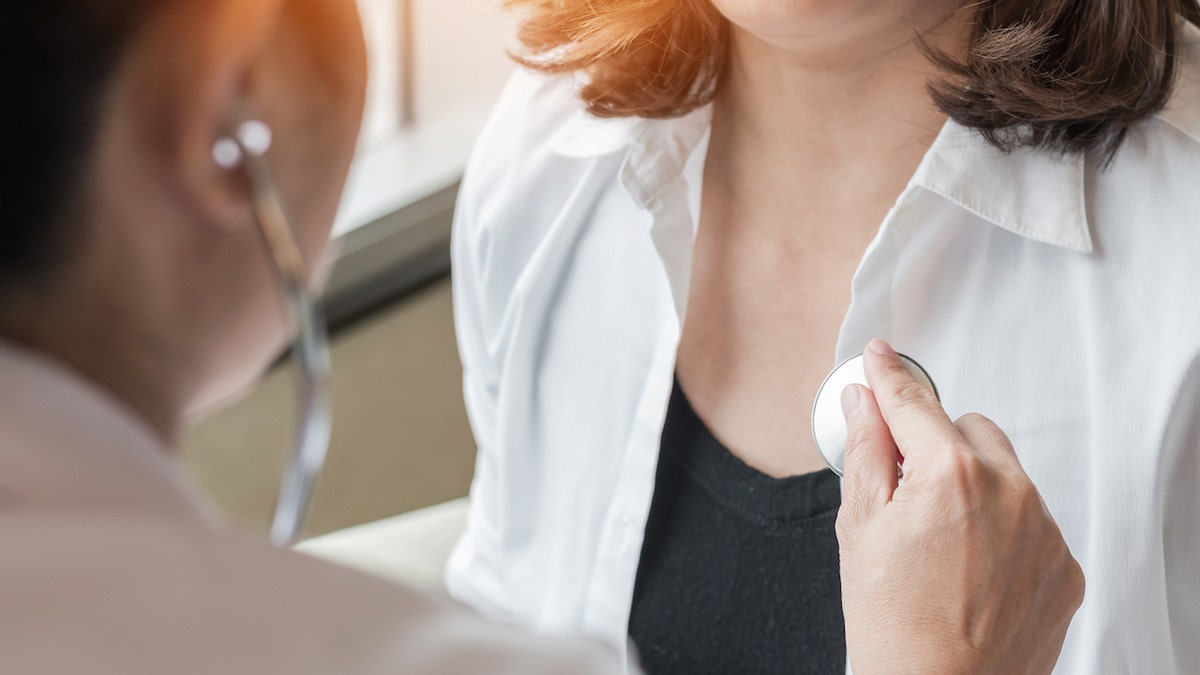
Using advanced cardiac imaging, the researchers found that traditional cholesterol markers (ApoB and LDL-C) were not associated with changes in plaque levels in the heart’s arteries or with baseline heart disease over a one-year period. (iStock)
Previous studies have also shown that people qualifying as LMHR have similar levels of coronary plaque to otherwise comparable groups that have normal LDL levels, “underscoring that ketogenic diet-induced LDL increases may not indicate a higher risk of coronary plaque,” the researcher said.
Dr. Nick Norwitz, a study leader and independent researcher at the University of Oxford, noted that this is the first study to isolate very high LDL and ApoB as risk factors for heart disease.
“All other human studies have included populations with metabolic dysfunction or individuals with congenital genetic causes of high LDL,” he told Fox News Digital.
8 CARNIVORE DIET MYTHS DEBUNKED BY RESEARCHER
The results seem to contradict what most clinicians would have predicted and what doctors are taught in medical training, according to Norwitz.
“While these data do not prove the conventional understanding is ‘wrong,’ per se, they do suggest the conventional model has a large blind spot.”

This is the first prospective trial of its kind in a unique population often labeled ‘high-risk’ by traditional guidelines, one doctor said, raising important questions about how cardiovascular risk is assessed in the context of low-carb, high-fat diets. (iStock)
According to Norwitz, cardiac imaging, including a CAC score, has “far more value” than cholesterol levels in predicting plaque progression.
“Thus, CAC scores can be used to risk-stratify patients and help individualize care,” he told Fox News Digital.
Scher noted that “ketogenic therapy” can be effective in treating certain metabolic-related conditions, but some people are afraid of continuing a keto diet because of their cholesterol.
“This study provides support that they do not necessarily need to stop the diet or treat their cholesterol — rather, they can work with their healthcare team for a more individualized and appropriate cardiac workup,” he advised.
Raising important questions
Dr. Ken Berry, a family physician and diabetes specialist in Tennessee, was not involved in the research but shared his thoughts on what he described as a “groundbreaking” study.
“The study found no association between LDL-C, ApoB and progression of coronary plaque over one year using high-resolution CT angiography,” he said to Fox News Digital.
“Instead, the strongest predictor of plaque progression was pre-existing plaque, not cholesterol levels — leading researchers to conclude that ‘plaque begets plaque, ApoB does not.’”
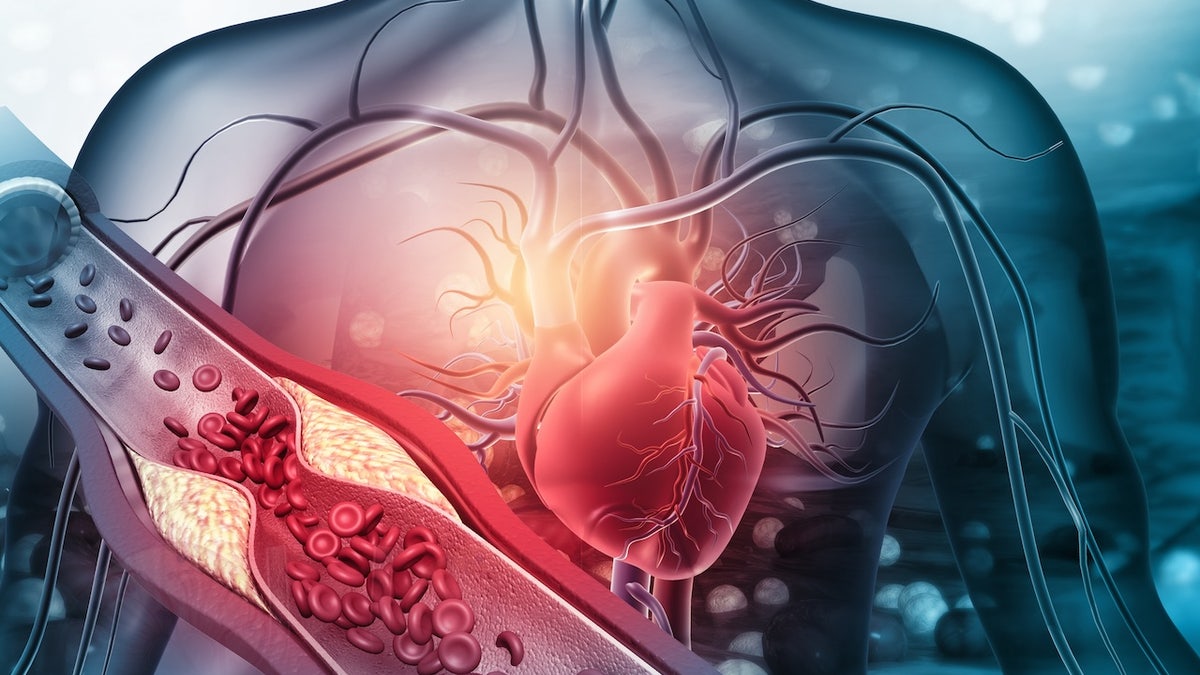
Existing plaque levels seemed to be a better predictor of future plaque accumulation, although some experts cautioned that limitations exist. (iStock)
This is the first prospective trial of its kind in a unique population often labeled ‘high-risk’ by traditional guidelines, Berry said, raising important questions about how cardiovascular risk is assessed in the context of low-carb, high-fat diets.
“The obvious implication is that if very high ApoB levels is not a good predictor of heart attack risk in this specific group of people, then is it a good predictor in any group of people?” he said.
“Or is it, as I suspect, just the latest popular lab test being used to scare people away from eating a proper human diet rich in saturated fat?”
Potential study limitations
Dr. Bradley Serwer, a cardiologist and chief medical officer at VitalSolution, a Cincinnati-based company that offers cardiovascular and anesthesiology services to hospitals nationwide, reviewed the study and pointed out some potential limitations.
“The study’s limited scope, involving a low-risk population over a short duration, renders it challenging to generalize findings to a broader, more vulnerable population,” Serwer told Fox News Digital.
HARVARD MEDICAL STUDENT ATE 720 EGGS IN A MONTH, THEN SHARED THE ‘FASCINATING’ RESULTS
“While the study’s objective was to propose a hypothesis regarding dietary cholesterol’s role, it does not provide definitive evidence for or against its significance.”
The cardiologist does, however, agree with the authors’ conclusions that “improved risk stratification tools” are essential for identifying individuals at higher risk of coronary artery disease.
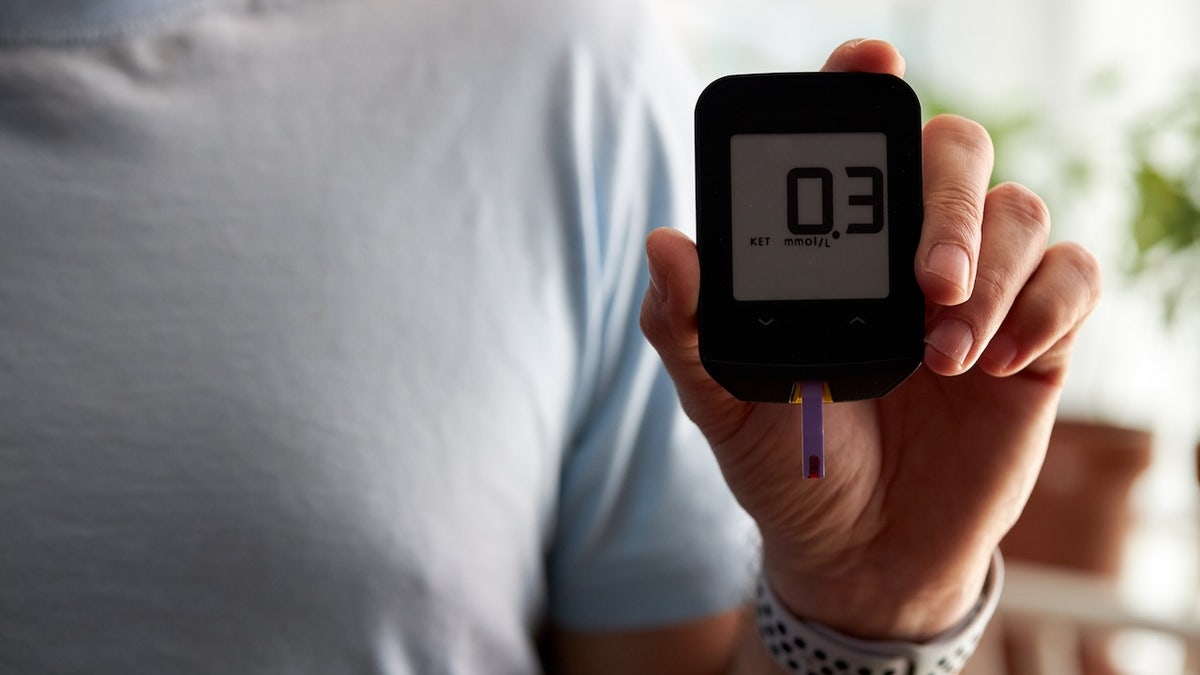
The effects of a ketogenic diet can be measured using a ketosis meter. “I hope doctors will embrace this research and treat this specific population of people differently from the rest of their patients, understanding the unique physiologic state of ketosis and the metabolic benefits it provides,” a researcher said. (iStock)
“As physicians, our primary responsibility lies in evaluating each patient on an individual basis and collaborating with them through shared decision-making to develop the most appropriate long-term care plan,” he added.
Michelle Routhenstein, a New York City registered dietitian who specializes in heart disease, noted that plaque formation is a multistep process that can take years to progress.
“The environment of the artery needs to be conducive to plaque formation,” Routhenstein, who was not part of the study, told Fox News Digital.
“This is a remarkable group of humans demonstrating remarkable physiology.”
“For example, individuals with high blood pressure, a subgroup that was excluded from the study, are more prone to endothelial damage that can cause apoB to deposit more readily in the artery wall.”
“If someone already has plaque in the arteries and sustains an elevated level of LDL and apoB, then it can develop into more plaque, as seen in this study.”
CLICK HERE TO SIGN UP FOR OUR HEALTH NEWSLETTER
“However, if someone is metabolically healthy, has no plaque at baseline, and has elevated apoB and LDL levels alone, then the environment may not necessarily cause plaque to form over a one-year period.”
Routhenstein pointed to prior research showing that high LDL and apoB over years of someone’s life, typically coupled with inflammation, insulin resistance and/or oxidative stress, can increase the risk of plaque development.
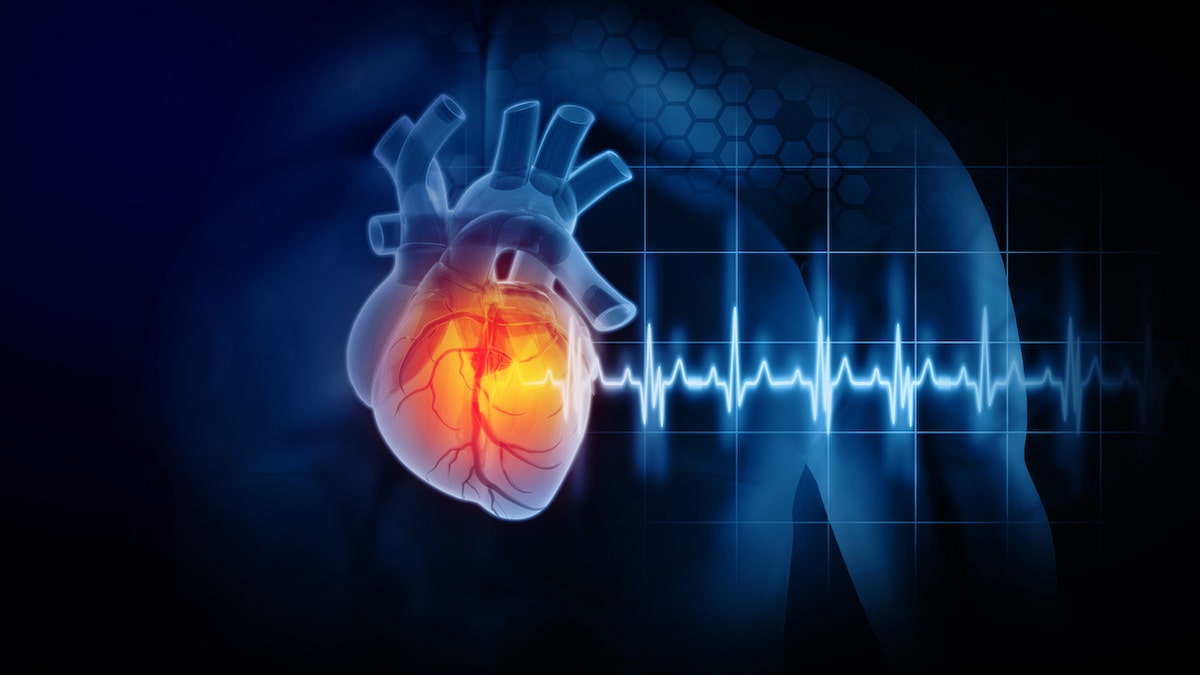
“It is important to note that many people who are implementing a ketogenic diet and are ignoring high LDL and apoB levels typically do not know they have soft plaque brewing,” said a dietitian nutritionist. (iStock)
“It is important to note that many people who are implementing a ketogenic diet and are ignoring high LDL and apoB levels typically do not know they have soft plaque brewing,” she added.
“Therefore, advising them to ignore LDL and apoB levels can be harmful — especially in a world where heart disease is so prevalent and remains the leading cause of death globally.”
Looking ahead
Scher said he hopes that more researchers will become inspired to further this study and apply it to different populations.
“But for now, I hope doctors will embrace this research and treat this specific population of people differently from the rest of their patients, understanding the unique physiologic state of ketosis and the metabolic benefits it provides,” he said.
For more Health articles, visit www.foxnews.com/health
In addition to more studies assessing risk in this population, Norwitz said the team hopes to further investigate the mechanisms of the lean mass hyper-responder (LMHR) phenotype.
“This is a remarkable group of humans demonstrating remarkable physiology,” he added.
Health
As RFK Jr. Champions Chronic Disease Prevention, Key Research Is Cut

Robert F. Kennedy Jr. has spoken of an “existential threat” that he said can destroy the nation.
“We have the highest chronic disease burden of any country in the world,” Mr. Kennedy said at a hearing in January before the Senate confirmed him as the secretary of Health and Human Services.
And on Monday he is starting a tour in the Southwest to promote a program to combat chronic illness, emphasizing nutrition and lifestyle.
But since Mr. Kennedy assumed his post, key grants and contracts that directly address these diseases, including obesity, diabetes and dementia, which experts agree are among the nation’s leading health problems, are being eliminated.
These programs range in scale and expense. Researchers warn that their demise could mean lost opportunities to address an aspect of public health that Mr. Kennedy has said is his priority.
“This is a huge mistake,” said Dr. Ezekiel Emanuel, the co-director of the Healthcare Transformation Institute at the University of Pennsylvania’s Perelman School of Medicine.
Decades of Diabetes Research Discontinued
Ever since its start in 1996, the Diabetes Prevention Program has helped doctors understand this deadly chronic disease. The condition is the nation’s most expensive, affecting 38 million Americans and incurring $306 billion in one recent year in direct costs. With about 400,000 deaths in 2021, it was the eighth leading cause of death.
The program has been terminated, and the reason has little to do with its merits. Instead, it seems to be a matter of a lead researcher’s working in the wrong place at the wrong time.
The program began when doctors at 27 medical centers received funding from the National Institutes of Health for a study asking whether Type 2 diabetes could be prevented. The 3,234 participants had high risk of the disease.
The results were a huge victory. Those assigned to follow a healthy diet and exercise routine regularly reduced their chances of developing diabetes by 58 percent. Those who took metformin, a drug that lowers blood sugar, decreased their risk by 31 percent.
The program entered a new phase, led by Dr. David M. Nathan, a diabetes expert at Harvard Medical School. Researchers followed the participants to see how they fared without the constant attention and support of a clinical trial. The researchers also examined their genetics and metabolism and looked at measures of frailty and cognitive function.
Several years ago, the investigators had an idea. Some studies suggested that people with diabetes had a higher risk of dementia. But scientists didn’t know if it was vascular dementia or Alzheimer’s or what the precise risk factors were. The diabetes program could renew its focus on investigating this with its 1,700 aging participants.
The group added a new principal investigator, the dementia expert Dr. Jose A. Luchsinger. For administrative reasons, including the newfound focus on dementia, the program decided its money should flow through Dr. Luchsinger’s home institution, Columbia University, rather than through Harvard or George Washington University, where a third principal investigator works.
On March 7, the Trump administration cut $400 million in grants and contracts to Columbia, saying Jewish students were not protected from harassment during protests over the war in Gaza. The diabetes grant was among those terminated: $16 million a year that Columbia shared across 30 medical centers. The study ended abruptly.
Asked about the termination, Andrew G. Nixon, director of communications at the Department of Health and Human Services, provided a statement from the agency’s acting general counsel saying that “anti-Semitism is clearly inconsistent with the fundamental values that should inform liberal education” and that “Columbia University’s complacency is unacceptable.”
At the time their grant ended, the researchers had started advanced cognitive testing for evidence of dementia in patients, followed by brain imaging to look for amyloid, the hallmark of Alzheimer’s disease. They planned to complete the tests during the next two years.
Then, Dr. Luchsinger said, the group was going to look at blood biomarkers of amyloid and other signs of dementia, including brain inflammation. For comparison, they planned to perform the same tests on participants’ blood samples from 7 and 15 years ago.
“Very few studies have blood collected and stored going that far back,” Dr. Luchsinger said.
Now much of the work cannot begin, and the part that had started remains incomplete.
Another troubling question the researchers hoped to answer was whether metformin increases, decreases or has no effect on the risk of dementia.
“This is the largest and longest study of metformin ever,” Dr. Luchsinger said. Participants assigned to take the drug in the 1990s took it for more than 20 years.
“We thought we had the potential to put to rest this question about metformin,” Dr. Luchsinger said.
The only ways to save the program, Dr. Nathan said, are for Mr. Kennedy to agree to restore the funding at Columbia or to transfer the grant to a principal investigator at another medical center.
The study investigators are appealing to the diabetes caucus in Congress, hoping it can help make their case to the Health and Human Services.
“We hope the congressmen and senators might prevail and say: ‘This is crazy. This is chronic disease. This is what you wanted to study,’” Dr. Nathan said.
So far, there has been no change.
Include Diversity. Actually, That’s Too Much Diversity.
Compared with the Diabetes Prevention Program, a program to train pediatricians to become scientists is tiny. But pediatric researchers say that the Pediatric Scientist Development Program helps ensure that chronic childhood diseases are included in medical research.
It began 40 years ago when chairs of pediatric departments called for the creation of the program, which has been continually funded ever since by the National Institute of Child Health and Human Development.
Participants are clinicians who were trained in subspecialties like endocrinology and nephrology, practiced as clinicians and were inspired to go into research to help young patients with the diseases they had seen firsthand.
The highly competitive program pays for seven to eight pediatricians to train at university medical centers for a year, pairing them with mentors and giving them time away from the clinic to research conditions including obesity, asthma and chronic kidney disease.
In retrospect, the program’s fate was sealed in 2021 when its leaders applied for a renewal of their grant. It seemed pro forma. This was its eighth renewal.
This time, though, an external committee of grant reviewers told the investigators their proposal’s biggest weakness was a lack of diversity. The program needed to seek pediatricians who represented diverse ethnicities, economic backgrounds, states, types of research and pediatric specialties.
The critique said, for example, that “attention must be given to recruiting applicants from diverse backgrounds, including from groups that have been shown to be nationally underrepresented in the biomedical, behavioral, clinical and social sciences.”
So the program’s leaders sprinkled diversity liberally through a rewritten grant application.
“Diversity, in its broadest sense, was all over the grant,” said Dr. Sallie Permar, professor and chairwoman of pediatrics at Weill Cornell Medical College and director of the program. “It was exactly what the reviewers appreciated when we resubmitted.”
The grant was renewed in 2023. Now it is terminated. The reason? Diversity.
The termination letter, from officials in the National Institute of Child Health and Human Development, said there was no point in trying to rewrite the grant request. The inclusion of diversity made the application so out of line that “no modification of the project could align the project with agency priorities.”
Mr. Nixon, the health department spokesman, did not reply to queries about the pediatric program’s cancellation.
Participants in the program are distraught.
Dr. Sean Michael Cullen had been studying childhood obesity at Weill Cornell in New York. He has investigated why male mice fed a high-fat diet produced offspring that became fat, even when those offspring were fed a standard diet.
He hoped his findings would help predict in humans which children were at risk of obesity so pediatricians could try to intervene.
Now the funds are gone. He may seek private or philanthropic funding, but he doesn’t have any clear prospects.
Dr. Evan Rajadhyaksha is in a similar situation. He’s a childhood kidney disease specialist at Indiana University. When he was a resident, he cared for a little girl who developed kidney disease because of a condition in which some urine washes up from the bladder into the kidneys.
Dr. Rajadhyaksha has a hypothesis that vitamin D supplementation could protect children with this condition.
Now, that work has to stop. Without funding, he expects to leave research and return to clinical work.
Dr. Permar said she hadn’t given up. The program costs only $1.5 million each year, so she and her colleagues are looking for other support.
“We are asking foundations,” she said. “We are starting to ask industry — we haven’t had industry funding before. We are asking department chairs and children’s hospitals, are they willing to fund-raise?”
“We are literally looking under every couch cushion,” Dr. Permar said.
“But,” she said, federal support for the program “has been the foundation and cannot be supplanted.”
-

 Movie Reviews1 week ago
Movie Reviews1 week agoVeera Dheera Sooran Review: Impactful But Drags
-

 Technology1 week ago
Technology1 week agoThe FAA hiding private jet details might not stop celebrity jet trackers
-

 News1 week ago
News1 week ago‘No Cake, No Entry’: More Than 1,000 Picnic to Celebrate the Love of Cake
-
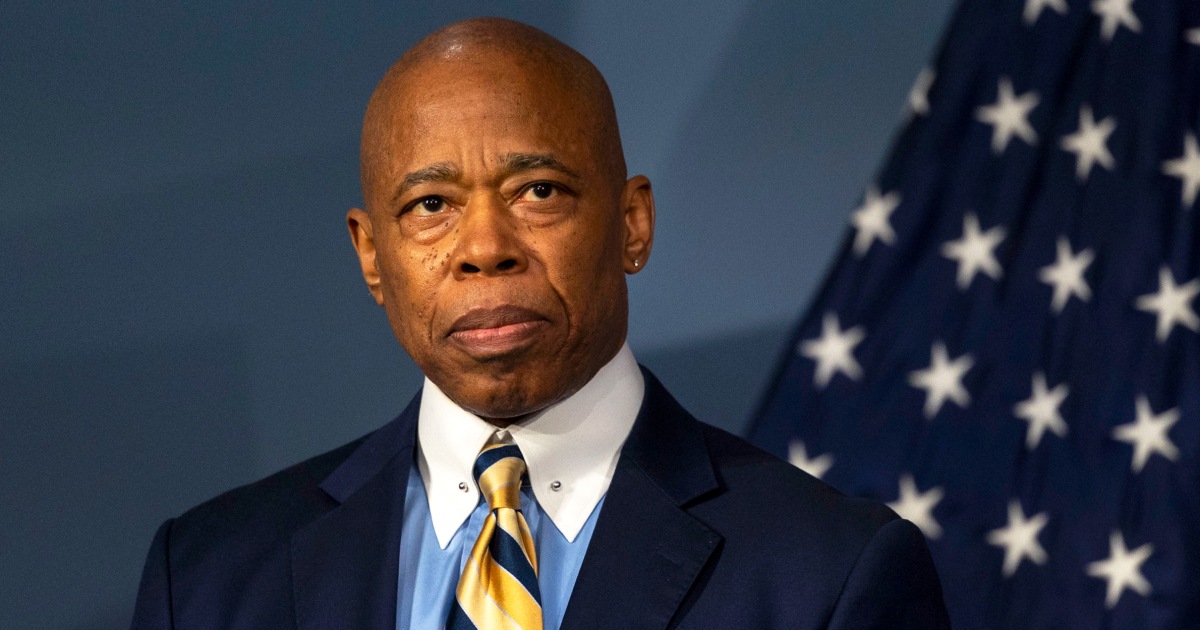
 News6 days ago
News6 days agoNYC Mayor Eric Adams' corruption case is dismissed
-

 News6 days ago
News6 days agoSupreme Court Rules Against Makers of Flavored Vapes Popular With Teens
-

 Technology1 week ago
Technology1 week agoWe went to 10 anti-Tesla protests — and a couple counter protests, too
-

 News1 week ago
News1 week agoTrump Says He’s ‘Not Joking’ About Seeking a Third Term in Defiance of Constitution
-
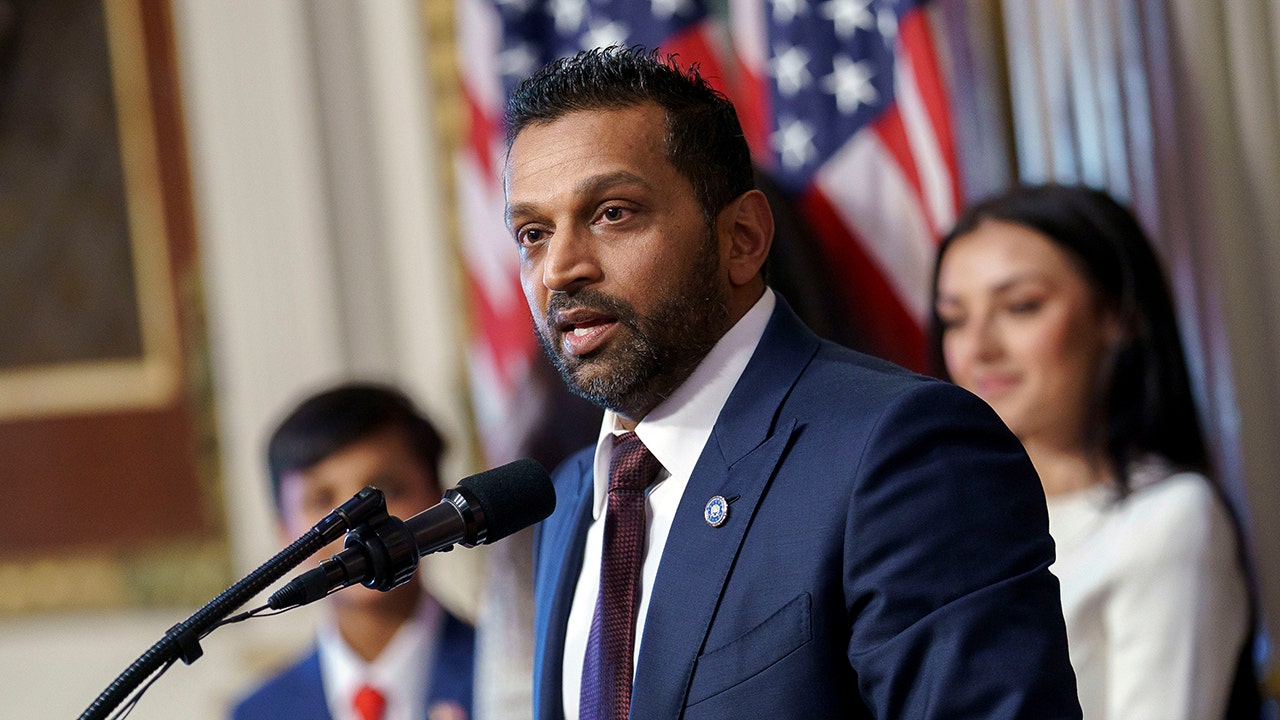
 Politics6 days ago
Politics6 days agoFBI flooded with record number of new agent applications in Kash Patel's first month leading bureau














